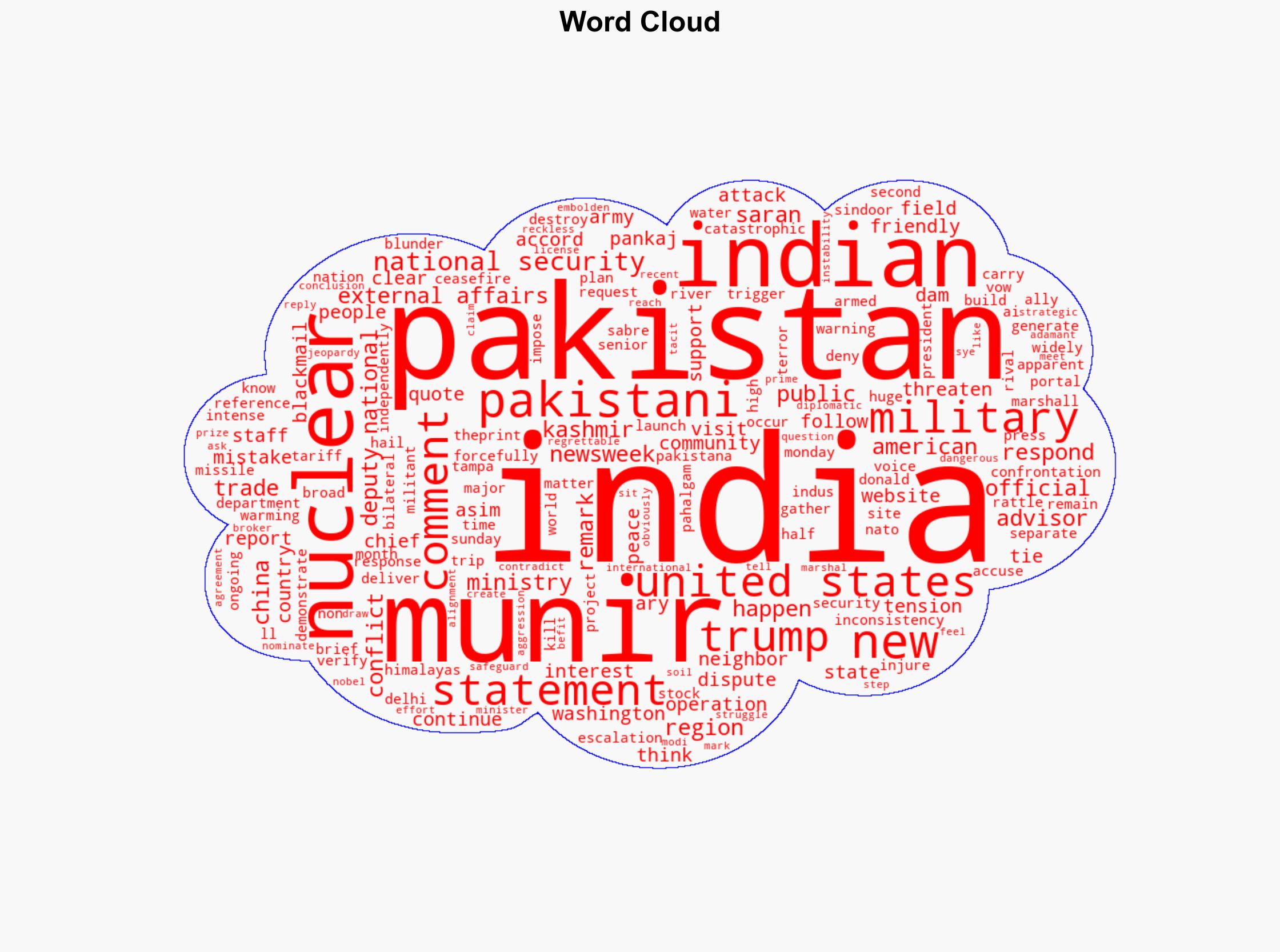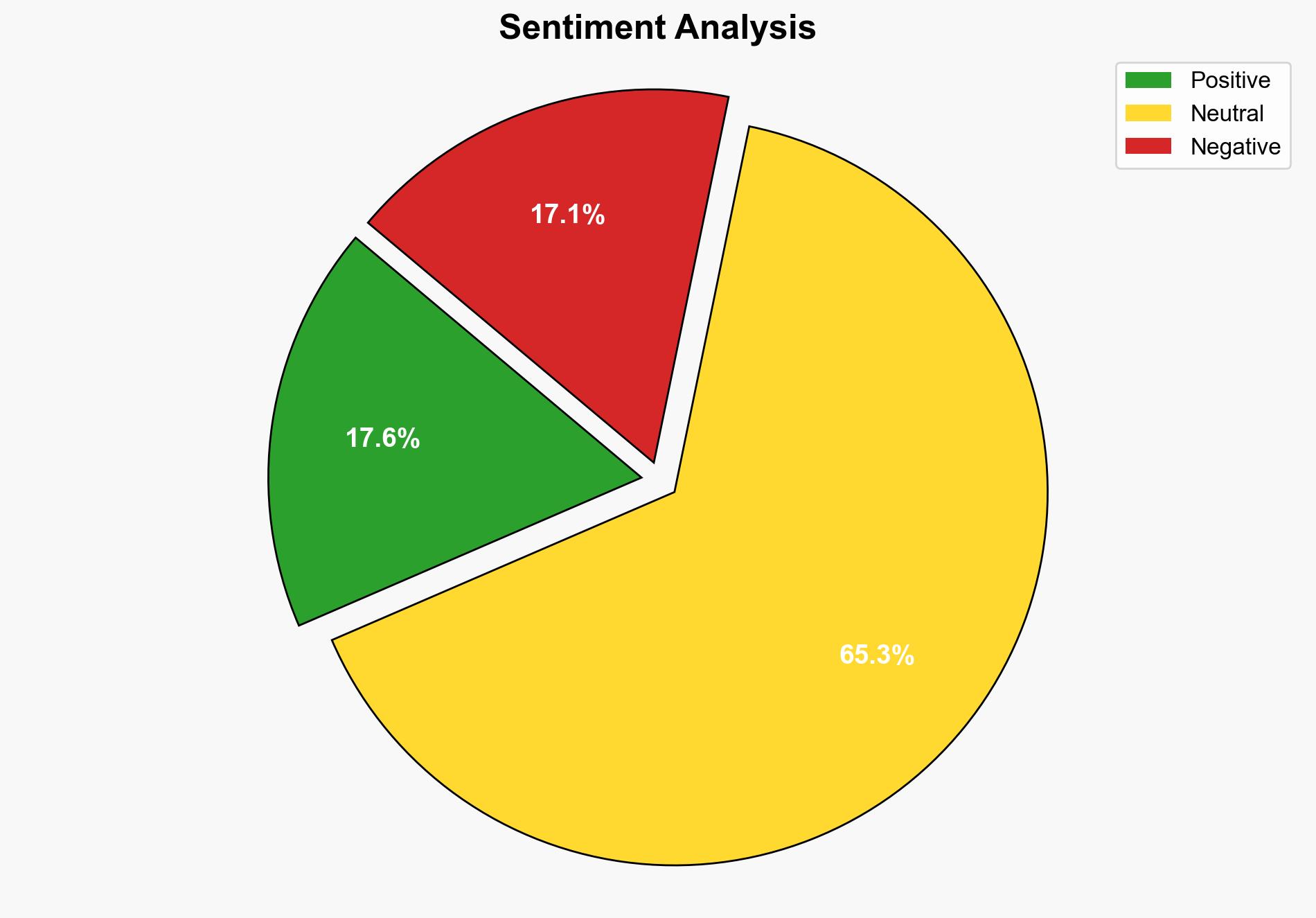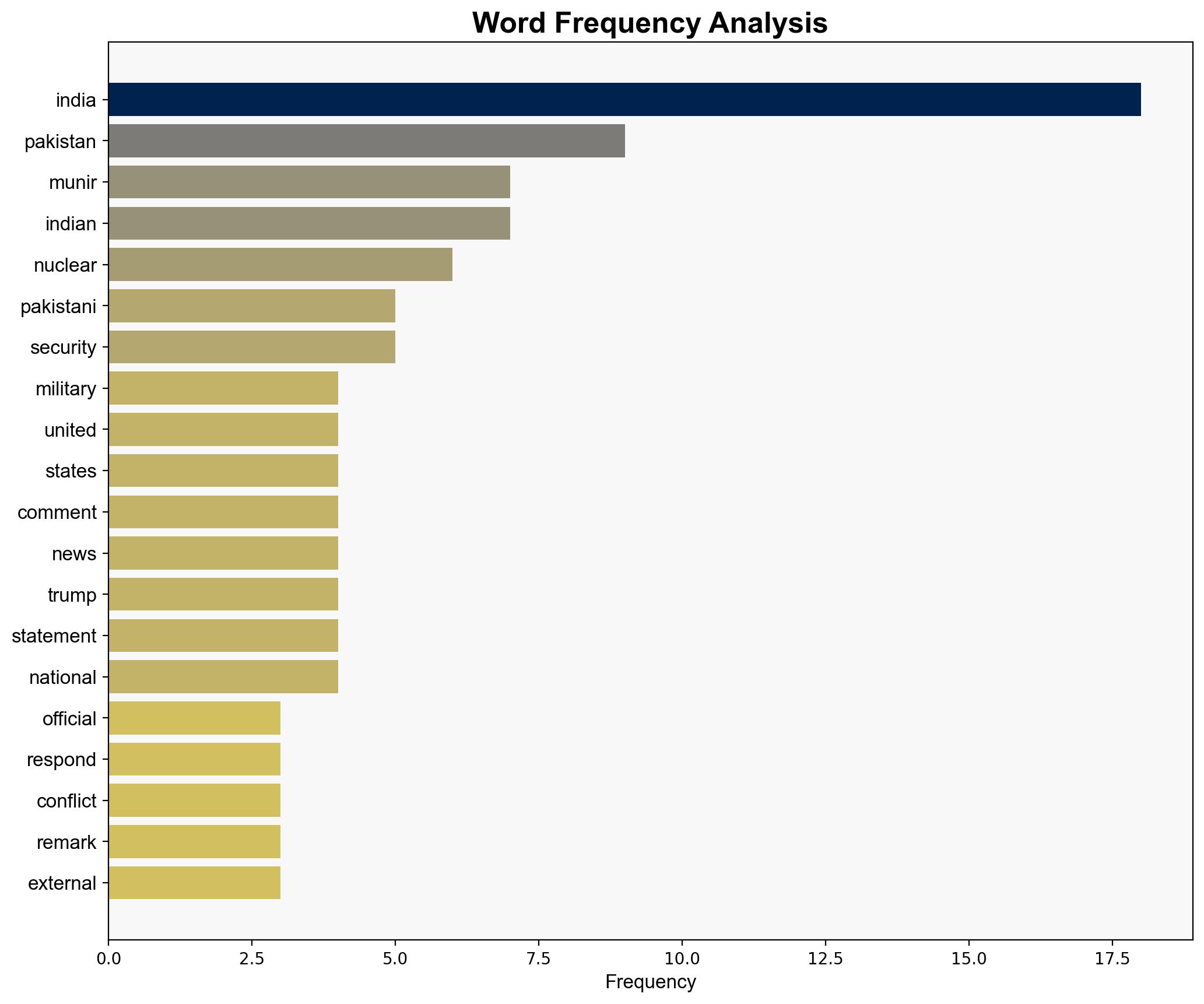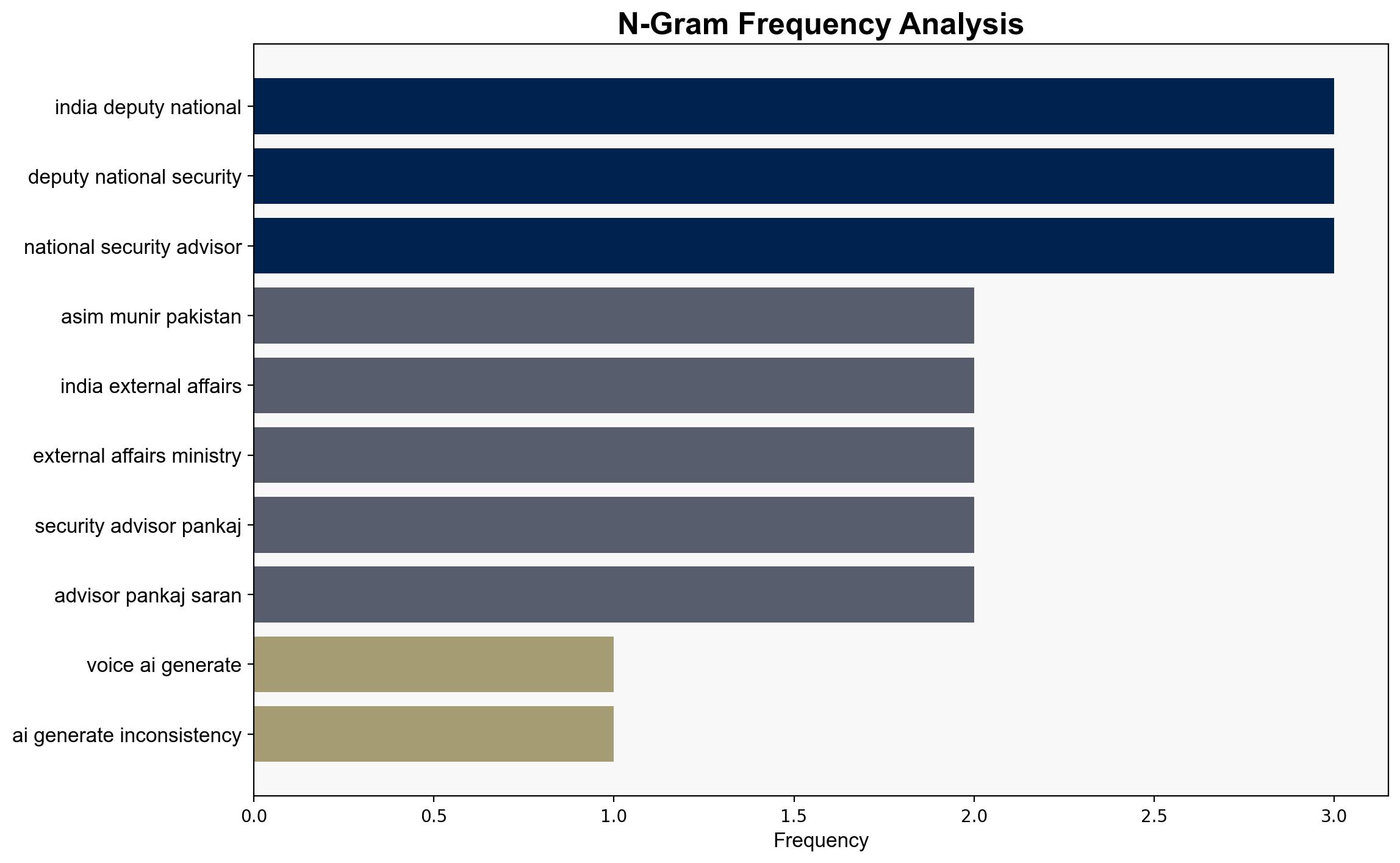Pakistan Makes Nuclear Threat to India From US Soil – Newsweek
Published on: 2025-08-11
Intelligence Report: Pakistan Makes Nuclear Threat to India From US Soil – Newsweek
1. BLUF (Bottom Line Up Front)
The most supported hypothesis is that Pakistan’s nuclear threat is a strategic maneuver to leverage international attention and pressure India amid ongoing regional tensions. Confidence in this assessment is moderate due to the complexity of geopolitical dynamics and potential misinformation. Recommended action includes diplomatic engagement to de-escalate tensions and reinforce communication channels between India and Pakistan.
2. Competing Hypotheses
1. **Hypothesis 1**: Pakistan’s nuclear threat is a calculated diplomatic strategy aimed at gaining leverage over India in ongoing disputes, particularly concerning water security and territorial issues in Kashmir. This hypothesis is supported by the timing of the statement during a visit to the United States, potentially seeking to involve international stakeholders.
2. **Hypothesis 2**: The threat is primarily a domestic political maneuver by Pakistan to consolidate internal support and distract from economic or political challenges. This hypothesis considers the potential for internal pressures driving external posturing.
Using ACH 2.0, Hypothesis 1 is more supported due to the international context of the statement and historical patterns of leveraging external threats for diplomatic gains.
3. Key Assumptions and Red Flags
– **Assumptions**: It is assumed that Pakistan’s military leadership has a coherent strategy aligning with national interests and that statements made in the U.S. are intended for international audiences.
– **Red Flags**: The inability to independently verify quotes raises concerns about potential misinformation. The lack of response from the U.S. State Department could indicate either strategic silence or lack of engagement.
– **Blind Spots**: Potential internal political dynamics in Pakistan influencing external postures are not fully explored.
4. Implications and Strategic Risks
– **Escalation Risks**: The threat could exacerbate tensions, leading to military skirmishes or increased nuclear posturing in South Asia.
– **Geopolitical Dynamics**: The U.S.’s role as a host for the statement could strain its relations with India, impacting broader regional alliances.
– **Economic Impact**: Prolonged tensions may affect regional trade and investment, particularly in sectors reliant on stability in South Asia.
5. Recommendations and Outlook
- Engage in multilateral diplomatic efforts to de-escalate tensions, involving key stakeholders like the U.S. and China.
- Enhance intelligence-sharing mechanisms to monitor potential military escalations.
- Scenario Projections:
- **Best Case**: Diplomatic resolution of disputes, leading to reduced military tensions and improved bilateral relations.
- **Worst Case**: Military confrontation escalating to nuclear brinkmanship, with severe regional and global implications.
- **Most Likely**: Continued diplomatic posturing with periodic military skirmishes, maintaining a status quo of high tension.
6. Key Individuals and Entities
– Asim Munir
– Pankaj Saran
– Donald Trump
– Narendra Modi
7. Thematic Tags
national security threats, cybersecurity, counter-terrorism, regional focus





